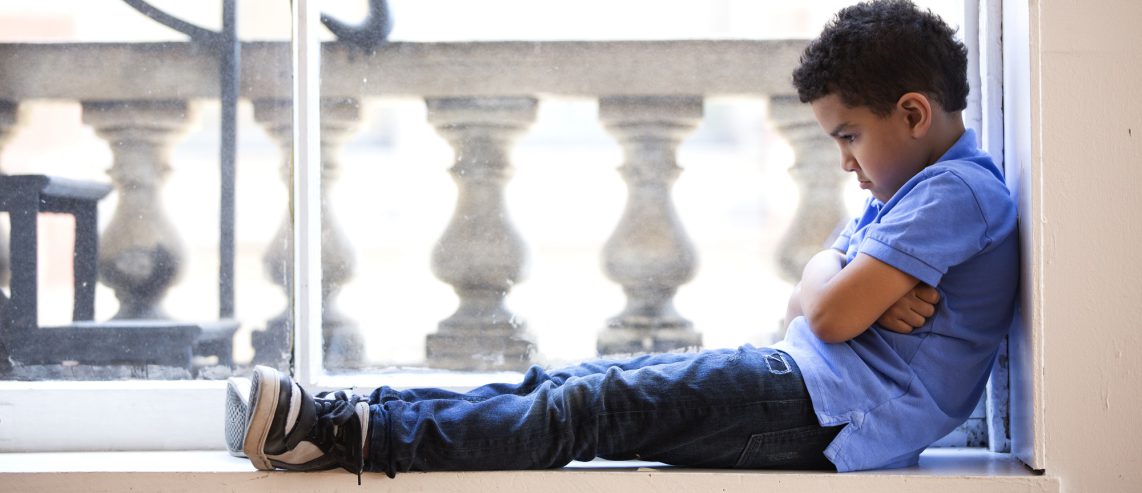Biting is common in kids aged one to three. Kids may bite because they are teething, out of frustration, when they are exited or overwhelmed, or to see what happens. Young kids don’t realize how much biting can hurt and often can’t stop themselves. Many times kids aren’t doing this as a way to try to hurt someone.
A firm but calm, negative response will usually discourage the behavior. A big reaction may lead to more biting.
Either way, biting will likely happen multiple times before your child learns. You will need to show your child that biting is not OK numerous times. They are still learning.
Parents and caregivers can also help their young kids learn not to bite by setting them up for success. Avoid things that can lead to biting and other unwanted behaviors, like skipping naps or late bedtime. Also, provide an alternative they can do to respond to the stimuli that leads them to bite.
Never Miss a Beat!
Subscribe to Our HealthBeat Newsletter!
Thank you for subscribing!
You can now select the specific newsletters you'd like to receive.
You are already subscribed.
Subscribe to more newsletters in our email preference center.
Sorry, an error occurred. Please try again later.
Get Healthy Tips Sent to Your Phone!
Why Do Kids Bite?
Kids bite for many reasons. They include:
- As a defense — if they are fighting with another child or family member.
- As comfort for teething pain.
- Out of frustration or anger, which they can’t put into words.
- When they are excited or overwhelmed.
- To get attention.
- To see what happens if they bite.
How to Stop a Child From Biting
The most important thing to do is stay calm if your child bites you or someone else. This can be hard to do, especially if you’re the one who got hurt. But staying relaxed will help you assess why your child bit and react constructively.
Try the following techniques.
Understand what led to the biting
Figure out why your child bit. If your infant or toddler randomly bites your shoulder or breast (when nursing), they’re likely teething.
Simply and calmly saying, “Ouch! Please don’t bite!” will show them that biting hurts. You can also stop nursing for a minute or put your child down. This will teach them that biting has consequences.
If your child is biting to show they are angry or overwhelmed, firmly state that biting is not OK. Then, ask your child why they bit. Ask them to “use your words” to show their needs instead.
Tell them what words to use. You can teach your toddler to say ‘No!’ or ‘I don’t like that’ if another child takes their toy, for instance.
A child might bite due to feeling excited or overwhelmed for the sensory input they get and not knowing otherwise how to express this. In these cases, it works well to have an alternative such as approved hard objects that they can use as an alternative to bite. Ask your pediatrician for some approved options.
It’s less common, but kids may bite to get a reaction or attention. For example, an older child may bite when you are holding a baby or talking to another adult.
If you think this is why your child is biting, first tell your child that biting is not OK. But don’t make a big reaction and avoid having a long talk about it. This would give them the attention they were seeking.
Instead of giving a lot of attention at the moment, try to get ahead of the need. Give them a good amount of one-on-one time with you every day.
At the moment, return to what you were doing after telling them not to bite. Ask them to ask nicely if they want your attention or to play. Reward them for asking nicely.
If you can’t play at the time, instead of saying “no,” tell them “yes with a caveat.” For example, if you’re busy cooking, try saying, “I like how you asked that. I will play when I’m done cooking.”
Prevent biting
You may notice that your child is more likely to bite when they feel overwhelmed, hungry, or tired. You can stop your toddler from biting by ensuring they sleep enough and eat regularly.
In many cases, kids bite out of frustration. They may begin by showing this feeling by yelling or acting out in other ways before they bite. If you see this happen, you can take your child out of the situation.
You can distract them from the issue. For example, by saying, ‘Let’s go pet the doggie,’ to move to another area.
If your child bites at daycare, ensure they have a ‘calm down’ corner. This is an area of the classroom with cushions, sensory toys, and books. Daycare staff can ask kids to go to the calm-down corner when things get tense. Also, work with your daycare to identify if there are triggers that lead to biting and problem solve ways to help prevent biting when exposed to these triggers. You can ask your daycare if there are approved items you could bring in to be used as an alternative to bite.
Tend to the person who was bit
If your child bites someone, make sure the person or kid is OK and show them sympathy. It’s a good idea to tend to them before your child. It reinforces that biting hurts and the bit person deserves care.
Wash the wound with soap and water or a sanitary wipe if unavailable.
If the bite pierced through the skin, put a Band-Aid on the wound after cleaning it. You should also suggest a call or visit with the doctor. The mouth has a lot of bacteria — a doctor may offer an antibiotic ointment.
Be on the lookout for signs of infection. This includes redness returning after going away, warmth, and increasing pain.
Be careful with punishments
When your child has bitten someone, try to stay calm. Big reactions like yelling or punishments like taking away toys aren’t likely to help.
Your kid already feels overwhelmed and possibly ignored. Adding to their stress doesn’t help them think clearly about their actions. Stress and fear can interfere with their ability to learn, which means more unwanted behaviors.
Some parents think they should lightly bite a child’s arm to show them it hurts. But this is not OK. Experts strongly recommend against biting your child back.
Biting a child back may reinforce the biting behavior. Kids may learn that biting is OK if they feel upset.
After telling your child ‘No,’ and helping the person who was bit, give your child time to process what happened. If your child is younger, sit with them away from others and have a ‘calm down’ time. This could be a good time to sit with them and discuss other ways to show their needs or feelings.
Remember to positively reinforce when they don’t bite. If they are mad and use their words, walk away, or bite an alternative option instead, praise them and give them positive attention.
If your child is two or older, you could try a time-out, especially if they’ve bitten before. Explain to your child that they are getting a time out to think and cool down, not because they were ‘bad.’ The American Academy of Pediatrics suggests two minutes for a two-year-old, three minutes for a three-year-old, and so on.
Bottom Line
Biting is common in kids aged one to three. At this age, they are still learning to show their feelings and often act on impulse. You can help by telling them not to bite and encouraging them to take calming breaks and use their words.
Talk to their doctor if your efforts don’t work, or your child bites out of frustration beyond age four. They can help you prevent or respond to biting based on your child’s specific behaviors and routines. Rarely, kids who bite may have an underlying condition, like autism or attention deficit hyperactivity disorder.
Editor's Note: This article was originally published on , and was last reviewed on .
Sources
American Academy of Pediatrics. How to give a time-out. Link
American Academy of Pediatrics. 10 Tips to prevent aggressive toddler behavior. Link
American Academy of Child & Adolescent Psychiatry. Fighting and Biting. Link
Dr. Shana L. Boyle. Biting. Nemours Kids Health. Link
Erin Heger. Why toddlers and kids bite. BabyCenter. Link
National Association for the Education of Young Children. Understanding and Responding to Children Who Bite. Link
About Pediatrics
From nutrition to illnesses, from athletics to school, children will face many challenges growing up. Parents often will make important health care decisions for them. We hope to help guide both of you in that journey. UPMC Children’s Hospital of Pittsburgh is a national leader in pediatric care, ranking consistently on U.S. News & World Report’s Best Children’s Hospitals Honor Roll. We provide expert treatment for pediatric diseases, along well-child visits, urgent care, and more. With locations across Pennsylvania, Maryland, and West Virginia, you can find world-class care close to home. We also work closely with UPMC Magee-Womens Hospital, a national leader in care for newborns and their mothers. Our goal is to provide the best care for your children, from birth to adulthood and beyond. Visit our website to find a doctor near you.

